China launches ‘punishment’ drills around Taiwan in alarming mock invasion of island
China has declared two days of major military exercises simulating an invasion of Taiwan, a provocative move that it describes as “punishment” for the island’s newly inaugurated president.
Dozens of Chinese fighter jets carrying live missiles were scrambled towards Taiwan on Thursday morning without any advance warning, and Beijing conducted mock strikes in targeted areas around the island.
The drills are thought to be the most expansive yet, encompassing areas that include Taiwanese islands near the Chinese mainland and are by far the biggest since the aftermath of then US House speaker Nancy Pelosi’s visit to the region in 2022.
The exercises were dubbed “2024 A” by Chinese officials, suggesting they could be the first of many this year. And while experts said they were clearly designed to send a message to the new Taiwanese president Lai Ching-te, the drills have also been met with deep concern by countries across the Pacific region.
China’s mock strikes hit simulated high-value military targets, ships and warplanes of the “enemy” and were conducted in coordination with naval ships and missile forces, according to Colonel Li Xi, spokesperson for the People’s Liberation Army’s Eastern Theatre Command.
The drills came three days after Mr Lai – a man Beijing detests as a “separatist” – took office as Taiwan’s new president.
Taiwan responded by scrambling its own jets and putting its entire military on alert. Its presidential office expressed regret that China was threatening the island’s democratic freedoms, as well as regional peace and stability, with its “unilateral military provocations”, but said people should rest assured Taiwan can and will ensure its security.
China’s “irrational provocation has jeopardised regional peace and stability”, the island’s defence ministry said. It said Taiwan will seek no conflicts but “will not shy away from one”.
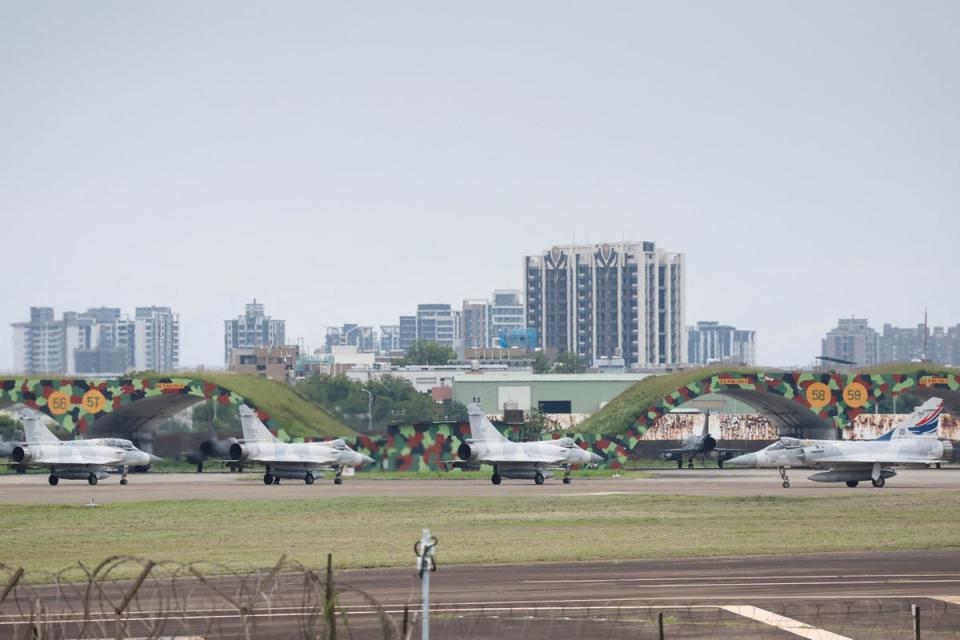
“This pretext for conducting military exercises not only does not contribute to peace and stability across the Taiwan Strait, but also shows its hegemonic nature at heart,” the ministry’s statement said.
China, which views democratically governed Taiwan as its own territory, reacted angrily to Mr Lai’s inauguration speech on Monday, in which he called on Beijing to “accept the reality” of Taiwan and stop threatening the island with war.
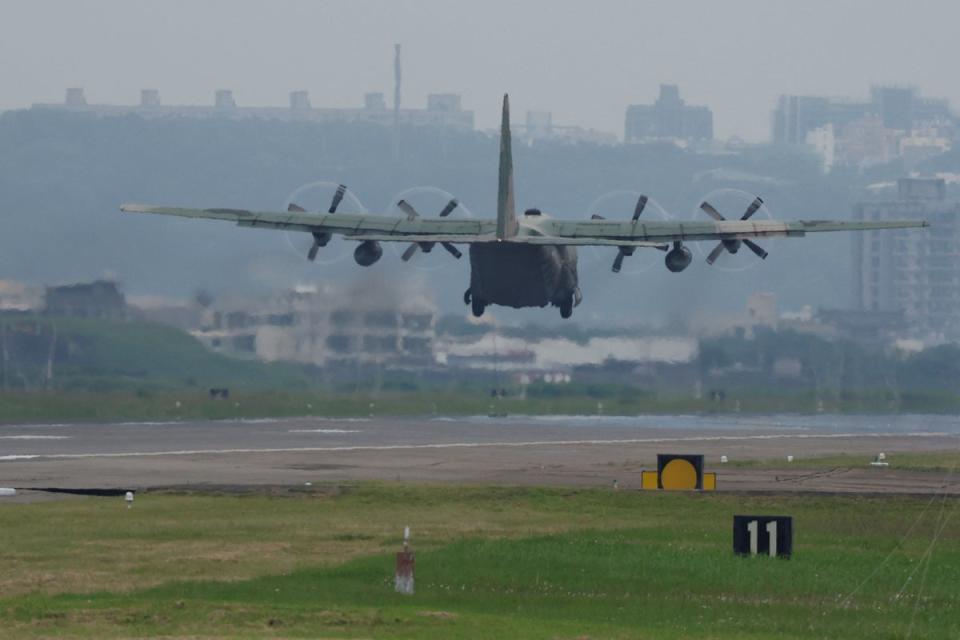
Mr Lai says only Taiwan’s people can decide their future, and rejects Beijing’s sovereignty claims. He says he has repeatedly offered talks with China but has been rebuffed.
Later on Thursday, a spokesperson for China’s Taiwan affairs office appealed directly to those living on the island who sympathise with Beijing, saying they should oppose “independence separatism” and work with like-minded citizens on the mainland instead. Beijing also said it would “resolutely crush” any attempt to pursue further autonomy for Taiwan.
The drills, which began at 7.45am local time, are being conducted in the Taiwan Strait, to the north, south and east of Taiwan, as well as areas around the Taiwan-controlled islands of Kinmen, Matsu, Wuqiu and Dongyin, said the Chinese military.
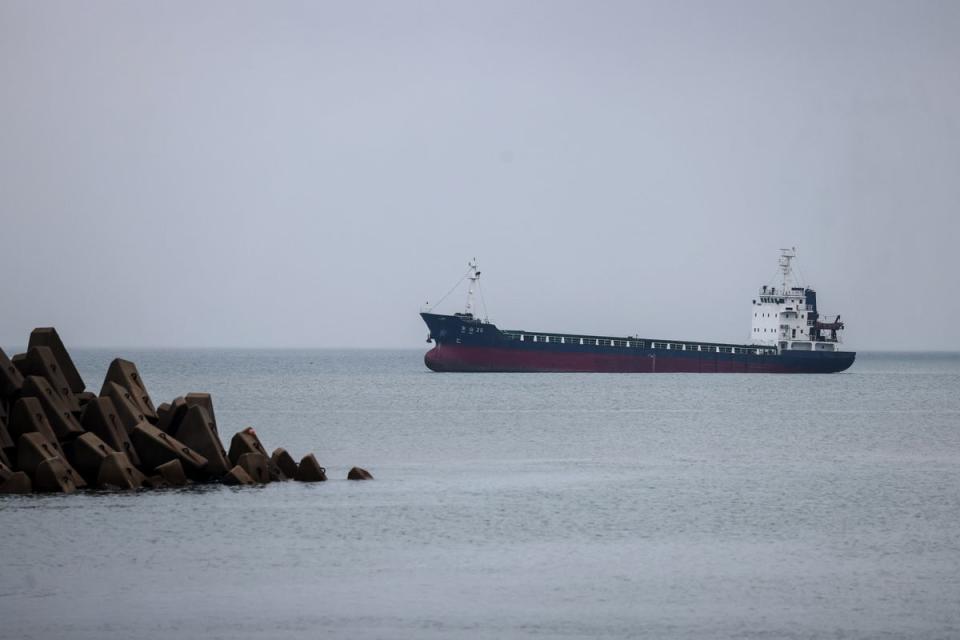
They said they were focused on testing the “real combat capabilities” of its armed forces operating both inside and outside the island chain, as well as the ability to conduct precision strikes on key targets.
“This is also a strong punishment for the separatist acts of Taiwan independence forces and a stern warning against the interference and provocation by external forces,” the military command added.
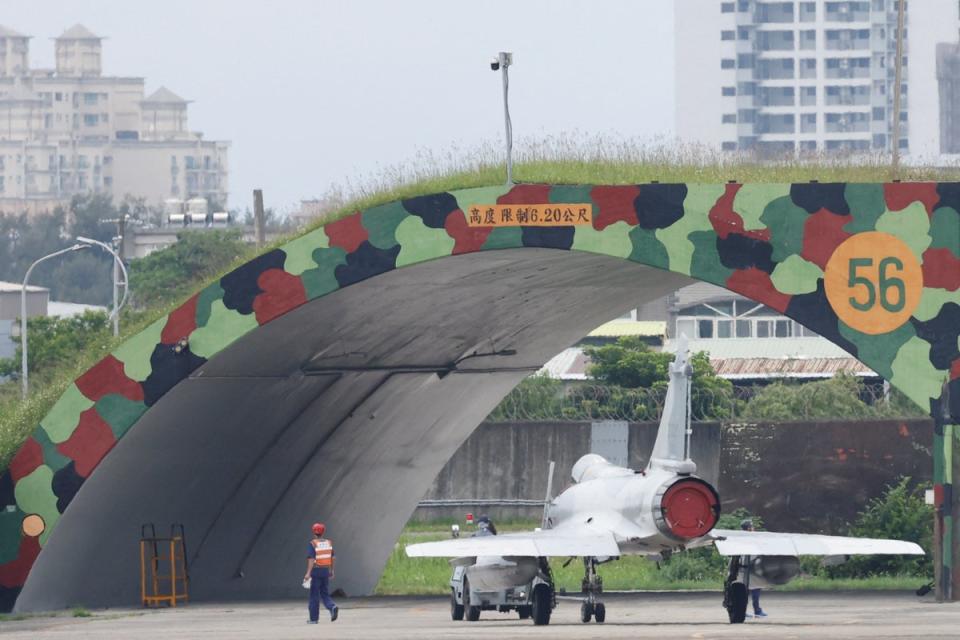
China’s state broadcaster CCTV said Mr Lai’s inauguration speech was “extremely harmful” and China’s countermeasures were “legitimate, legal and necessary”.
Mr Lai’s speech was a confession of a desire for Taiwan independence and undermined peace and stability across the Taiwan Strait, it said.
Although the drills will only last two days, the geographical scope is larger than any previous exercises as they include Taiwan’s outlying islands, said Su Tzu-yun, a research fellow at Taiwan’s top military think tank, the Institute for National Defense and Security Research.
They were designed to demonstrate China’s ability to control the seas and prevent the involvement of foreign forces, he said.
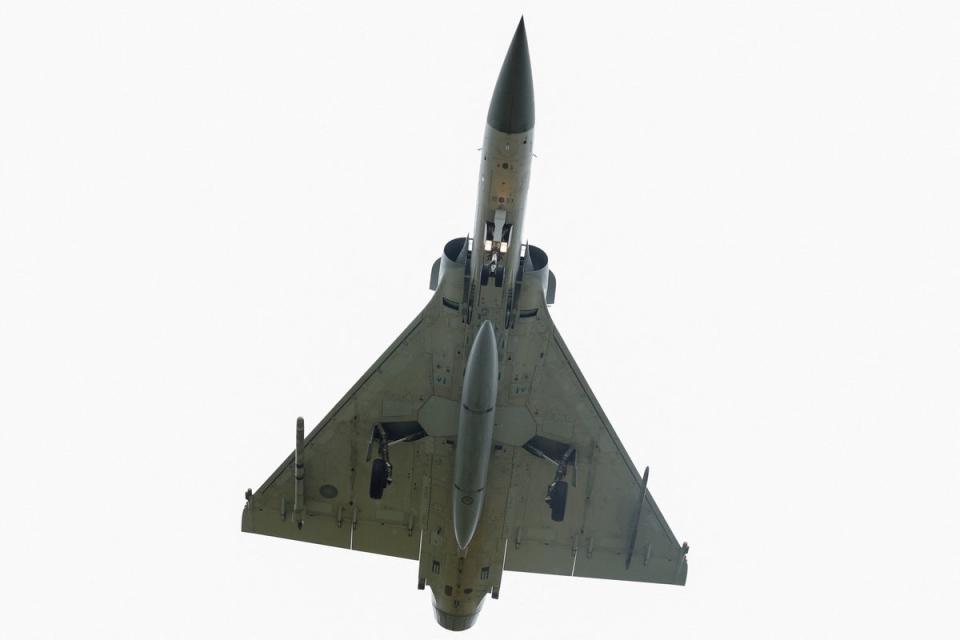

“The political signals here are greater than the military ones,” he added.
China’s drills are an attempt to shock both the newly elected president and Taiwan’s pro-democracy contingent as a whole, said Wu Xinbo, the director of the Centre for American Studies at Fudan University in Shanghai.
The speed with which China has been able to encircle Taiwan “is also certainly a blow to the US”, he said. The drills show that “the mainland is willing to increase its deterrence towards Taiwan independence forces and strengthen its capability to mould the Taiwan Strait situation in response to the domestic changes in Taiwan”.
“I believe that the shock and awe military drills from today onwards will be a routine occurrence,” he added.
Condemning the “normalisation of abnormal actions”, a US general demanded public criticism of China’s actions.
“We need to condemn it publicly and it needs to come from us but it also needs to come from nations in the region,” said Lieutenant General Stephen Sklenka, deputy commander of the US Indo-Pacific command in Canberra.
“It is far more powerful when it comes from nations in this region. It is concerning but I also believe in my heart of hearts that conflict between our two nations is not inevitable and it’s not a foregone conclusion,” he said.
Countries including Australia, South Korea and Japan have raised concerns about the escalation of tensions.
“It is important to clearly communicate the importance of peace and stability in the Taiwan Strait directly to China, and work closely with allies including the United States and clearly communicate the shared position of each country,” said Yoshimasa Hayashi, the chief cabinet secretary of Japan.
Additional reporting by agencies


